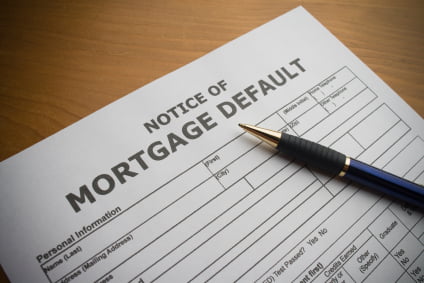Residential landlords: NODs must be disclosed to potential tenants
Civil Code § 2924.85
Added by S.B. 1191
Effective dates: January 1, 2013 – January 1, 2018
Owners of one-to-four unit residential rental property who have received a notice of default (NOD) on the property must disclose the NOD in writing to any prospective tenants before entering into a lease agreement.
If a landlord violates this law the tenant may:
- terminate the lease and recover all prepaid rent, plus the greater of one month’s rent or twice the amount of money lost; or
- if the foreclosure sale has not occurred, remain bound by the lease and deduct the amount of one month’s future rent.
The required disclosure must include the following statement:
“The foreclosure process has begun on this property, and this property may be sold at foreclosure. If you rent this property, and a foreclosure sale occurs, the sale may affect your right to continue to live in this property in the future. Your tenancy may continue after the sale. The new owner must honor the lease unless the new owner will occupy the property as a primary residence, or in other limited circumstances. Also, in some cases and in some cities with a “just cause for eviction” law, you may not have to move at all. In order for the new owner to evict you, the new owner must provide you with at least 90 days’ written eviction notice in most cases.”
The disclosure notice must be provided in English, and include Spanish, Chinese, Tagalog, Vietnamese and Korean translations.
It is the owner’s responsibility to ensure this notice is provided in the event of an NOD. A property manager cannot be held liable for failure to provide this notice, unless he neglects to provide the notice after being instructed by the owner to do so.
This law will sunset on January 1, 2018.



















